Table of Contents
What is a ‘Hosted Bar’?
Put simply, the term “hosted bar” means that the person paying for the wedding is picking up the tab for all the drinks. You are essentially “hosting” your guests with bar service. Costs for this depends on the venue, number of guests, and types of alcohol.
BUDGET TIP: The duration of bar service can increase or decrease costs. If your event is due to end at 11pm, you can halt the hosted bar at 10pm or earlier.
What is an ‘Open Bar’?
At Wedgewood Weddings, we view an open bar as the same as a hosted bar. In industry terms, you pay ahead of time-based on an estimate of how much your guests will drink. This is calculated based on number of guests and time of event. Usually, it’s an extremely cost-effective option. You can decide if the open bar will be limited to wine and beer, or if you want to include spirits. If you do decide to add spirits, you can usually choose a level from ‘house’ through to ‘top shelf’. You can also nominate that only people in the wedding party have access to spirits or even a certain favorite liquor if that suits your style!
What is a ‘No-Host Bar’?
A no-host bar means your guests are paying for their own alcoholic beverages. You are not hosting them with bar service.
BUDGET TIP: This is the most budget-friendly option if you are looking to save in this area. With the money you’re saving, you can put it towards upgrading other services!
What is a ‘cash bar’?
Exactly the same as a no-host bar. ‘Cash bar’ is another name for the same service. Basically, your guests will be charged each time they purchase a drink. They can choose to open a tab or pay per drink. A cash bar is exactly what you get if you’re at any public bar. All your guests will understand the cash bar or no-host bar concept.
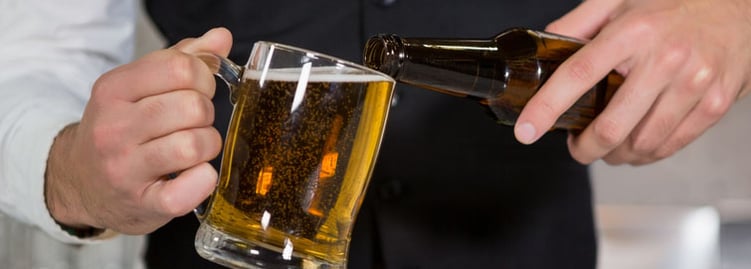
What is a ‘timed open bar’?
Exactly as it sounds. Some couples – or their generous financers/friends – choose to pay for all the drinks for a limited amount of time. This is usually Cocktail Hour or for two hours after the ceremony. This is a great option if you’re trying to save money, or your guests aren’t big drinkers.
Another idea is to add a sign in your bar area saying:
“Thank you for celebrating our big day, first drink is on us!”
What is a ‘Cash Bar with Tickets’?
Some event venues allow you to give drink tickets to guests. You pay for those drinks based on how many tickets you will give out, then anything beyond those first two drinks is covered by the guests. This is a common option for holiday parties where the organizing company may provide two drinks per guest, and then guests can choose to purchase extra drinks if they wish.
Tell Me About A ‘Limited Bar’?
Depending on your guests, you might want to make things really simple. One red wine, one white wine, a bottled beer, and the usual soft drinks. This is a very common choice for people at smaller events or weddings at non-event venues. If you’re purchasing all the hard beverages in advance (remember to check if you can return anything unconsumed!) then you want to be reasonable about how many options you’re giving your guests. Some couples choose to only provide drinks they like 😀
What about soft drinks?
At Wedgewood Weddings, we always include soft drinks like iced water and sodas. We’ll also provide an iced tea and hot coffee station so that guests can help themselves during your event.
How are bar Fees Incurred?
Some venues will charge you an extra fee for hosted and/or no-host bar service. This fee covers the costs of the bartenders. Not all venues charge for these services, but it is good to ask.
Some locations do a per-person charge, others charge fees based on consumption: this means that you pay for the total amount of alcohol consumed during your reception.
What is a ‘Corkage Fee’?
This fee is typically charged if a guest wants to bring their own alcohol. At our venues, we do not charge a corkage fee. As a regulation of our licensing agreements, no outside alcohol is allowed to be consumed on the premises.
If there is a particular type of craft beer or liquor that you prefer, tell the venue team and they’ll do all they can to make sure it is stocked just for you.
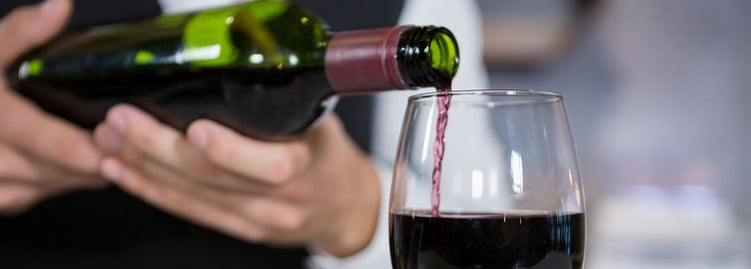
What is a ‘Bar Minimum’?
A bar minimum means that the venue will automatically charge you a minimum amount for bar service. If your guests consume less than that amount, they will still charge you their minimum amount. If your guests consume more, then you will pay the difference.
Event venues sometimes apply this to cover the cost of bar staff, procurement, and overheads. If you choose to provide full bar service but only two guests decide to take advantage of the bar, then the venue still needs to cover this expense. That is why they set a minimum. In almost all cases, guests at an event will easily meet the minimum beverage consumption as it’s based on reasonable expectations garnered from guest behavior at many, many events.
Can guests get cocktails at our wedding?
Yes. For simple mixed drinks like ‘rum and coke’, gin and tonic’, or ‘vodka and soda’ this is generally included with any hosted/open bar if you included spirits at any tier.
If you want formal cocktails, then speak with your event team beforehand. They can make it happen but need to have everything on hand. For instance, they need cherries and fresh oranges for an Old Fashioned or mint for a Mojito.
Can We have a Signature Cocktail?
Certainly! A signature cocktail is the perfect option for multiple reasons. You can showcase a flavor you love! It helps the bar staff plan ahead for your event. It also helps guests decide what to drink. If they see a signature cocktail on the menu featuring a cute name that speaks to your relationship, then they’re bound to order it! For you, it also helps you decide in advance if you want guests to generally be drinking something that’s refreshing while light on booze, or something heavier.
Some cocktails can be batched in advance which is why they’re perfect for large group events. Batched cocktails or pre-prepared cocktails mean no long lines at the bar!
If you book with Wedgewood Weddings and want a signature cocktail, then our team will work with you to create something that fits your bar service level and taste preferences.
Can You Give Us Delicious Signature Cocktail Ideas?
Of course! These three wedding cocktails are classics for good reason.
OLD FASHIONED
-
Ingredients: 1 1/2 oz Bourbon or Rye Whiskey, 2 dashes Angostura Bitters, 1 Sugar Cube, Few dashes plain water
-
Preparation: Place sugar cube in old-fashioned glass and saturate with bitters, add a dash of plain water. Muddle until dissolved. Fill the glass with ice cubes and add whiskey. Garnish with orange slice, and a cocktail cherry
-
Served: On the rocks; poured over ice
FRENCH 75
-
Ingredients: 2 oz Champagne, 1/2 oz Lemon Juice, 1 oz Gin, 2 dashes Simple Syrup
-
Preparation: Combine gin, syrup, and lemon juice in a cocktail shaker filled with ice. Shake vigorously and strain into an iced champagne flute. Top up with Champagne. Stir gently
-
Served: Straight up; without ice
MOSCOW MULE
-
Ingredients: 4 oz Ginger Beer, 1 1/2 oz Vodka, 1/6 oz Lime Juice
-
Preparation: Combine vodka and ginger beer in a copper mug or highball glass filled with ice. Add lime juice. Stir gently and garnish with a lime slice
-
Served: On the rocks; poured over ice
What are Cocktail Stations?
This is a fairly modern idea so that guests can build their perfect drink. Great examples would be a Bloody Mary bar where guests can add their own garnishes and spice level. If Marjorie wants extra fiery spiciness with olives, celery, and Worcestershire sauce but Lisa wants mild with a bacon stir stick, then they can both build their own at a Bloody Mary bar.
Alternative cocktail stations to consider are:
-
Spiked hot chocolate bar with options like rum or whiskey, plus marshmallows or grated chocolate
-
Build your own sangrias with fruit garnishes and a choice of wine or low-alcohol punch
-
Margarita station with salt and liqueur options
-
Mojito bar with a choice of rums and garnishes
What is ‘cocktail hour’?
This glorious retro term refers to the time before a banquet is served. The cocktail hour is when guests enjoy an aperitif – a Latin-based word that refers to a drink that opens one’s appetite.
At weddings and large events, a cocktail hour gathers guests together before the dining area is opened and ensures that everyone will be ready to be seated and eat when the food is ready. More specifically, guests usually mingle together in a cocktail area while wedding portraits are coordinated. The cocktail hour gives them something to do while the couple and their wedding party may be absent.
To balance cocktail hour drinks, H’ors D’oeuvres are often served. These may be at a ‘station’ which means guests can help themselves or ‘passed’ which means that wait staff will carry platters of appetizers and offer them to each guest as they pass. (The term H’ors D’oeuvres comes from the French and is pronounced or-durr-ves. It means ‘outside of work’ so you eat them before the big work of a meal!)
Is it okay for the bride or groom to drink something special?
Absolutely! The couple celebrating, and sometimes their wedding party too, often share a special drink before or after the ceremony. And, if you want to drink champagne all night, go ahead. If you have a special choice of whiskey, then that’s an option too.
If you book with Wedgewood Weddings, then tell your wedding team what you want to drink, and they’ll make sure you have a fresh glass at hand throughout your event.
Explain ‘Bar Hours’
This question usually refers to what a bar will be serving at particular points in an event. For instance, only offering signature cocktails during cocktail hour. Closing for drink orders during dinner service when there may be wine placed on the table. You can also choose to offer a full bar after dinner, only a limited drink selection within the last two hours of your event, or switch to soft drinks only.
Do bar staff need to be tipped per drink?
No. Your guests may want to, but there is no need. If a service fee or gratuity isn’t included in your event or wedding venue contract, the general guidance is to tip your bartender 15-20% of the final bar tab. If a service fee is included, there’s no need to tip extra, although you can if you wish.
What is a ‘toast’?
Typically, at large events, toasts will be made to celebrate the guests of honor or wedding couple. These can be personalized anecdotes or ritualized sayings. At the conclusion of a speech, a toast will be made, and everyone present will raise their glasses and repeat the sentiment.
We can provide fine champagne or high-quality cider to each guest for use during the toasting. In some cultures, it is poor form to toast with water or an empty glass. If you do not enjoy champagne, selecting prosecco or cava is a great choice or you can toast with your favorite beverage.
Example toasts:
“May you live as long as you like and have all you like as long as you live.”
“My heart is as full as my glass, when I drink with you, dear friends!”
“There are good ships, and there are wood ships. The ships that sail the sea. But the best ships, are friendships, and may they always be.”
What is ‘Wine For the Table’?
Common at many large-scale events, bottles of red and white wine will be placed on the tables before guests enter the dining area. Guests can then help themselves as needed or the wait staff will keep glasses topped up as they pass. ‘Wine for the table’ is provided so that guests can enjoy their meal without waiting at the bar.
‘Wine for the table’ is not synonymous with ‘table wine’ – which is often the house wine and purchased in volume as it matches the tastes of most guests.
How Much do People Typically Drink?
Great question! A rule of thumb is one drink per person per hour plus a drink they can toast with during speeches. You know your crowd and can decide if this sounds reasonable.
What is a ‘dry bar’?
At some events, alcohol is not appropriate, and those occasions call for a dry bar – that means all the available beverages are non-alcoholic (aka 0% alcohol). The requirement for a dry bar can be due to many factors like religion, local legislation, or guest age.
***
Deciding on bar options may feel overwhelming, but our team at Wedgewood Weddings is here to help. Based on your guest count and suggestions, they’ll be able to help you make a good decision that is respectful of your budget and your guests’ needs. Unless your guests are all non-drinkers, most guests expect a bar setup with a selection of wine, beer, and spirits. However, you can choose to exceed or confound expectations and etiquette by doing what feels right for you – at your event, no one will judge as they’ll be having a great time regardless of your bar choice.
Cheers!
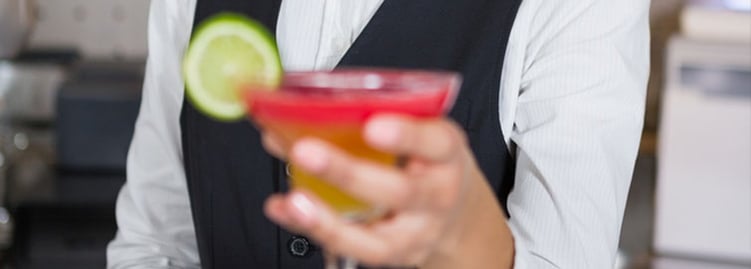
***

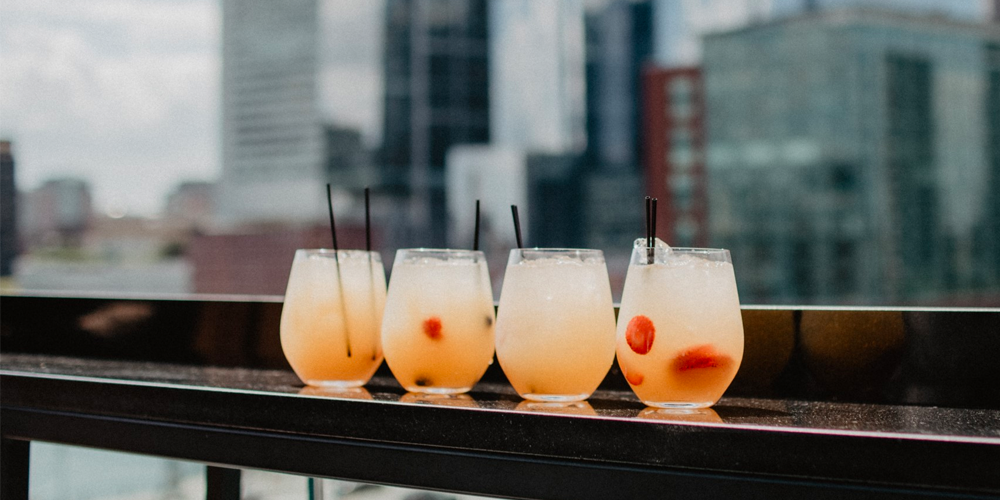
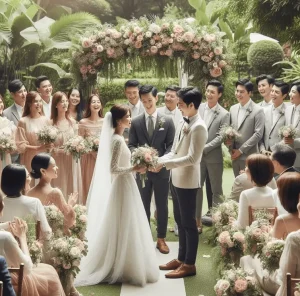


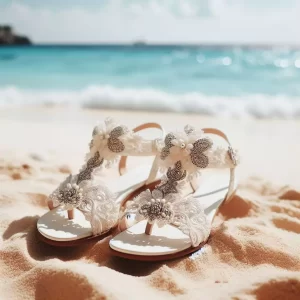
More Stories
Destination Weddings: Your Ultimate Guide to Saying I Do Away
Elopement Videography: Locations, Costs, and Why Couples Elope
TaylorMade Spider GT Rollback, Notchback and Splitback putters